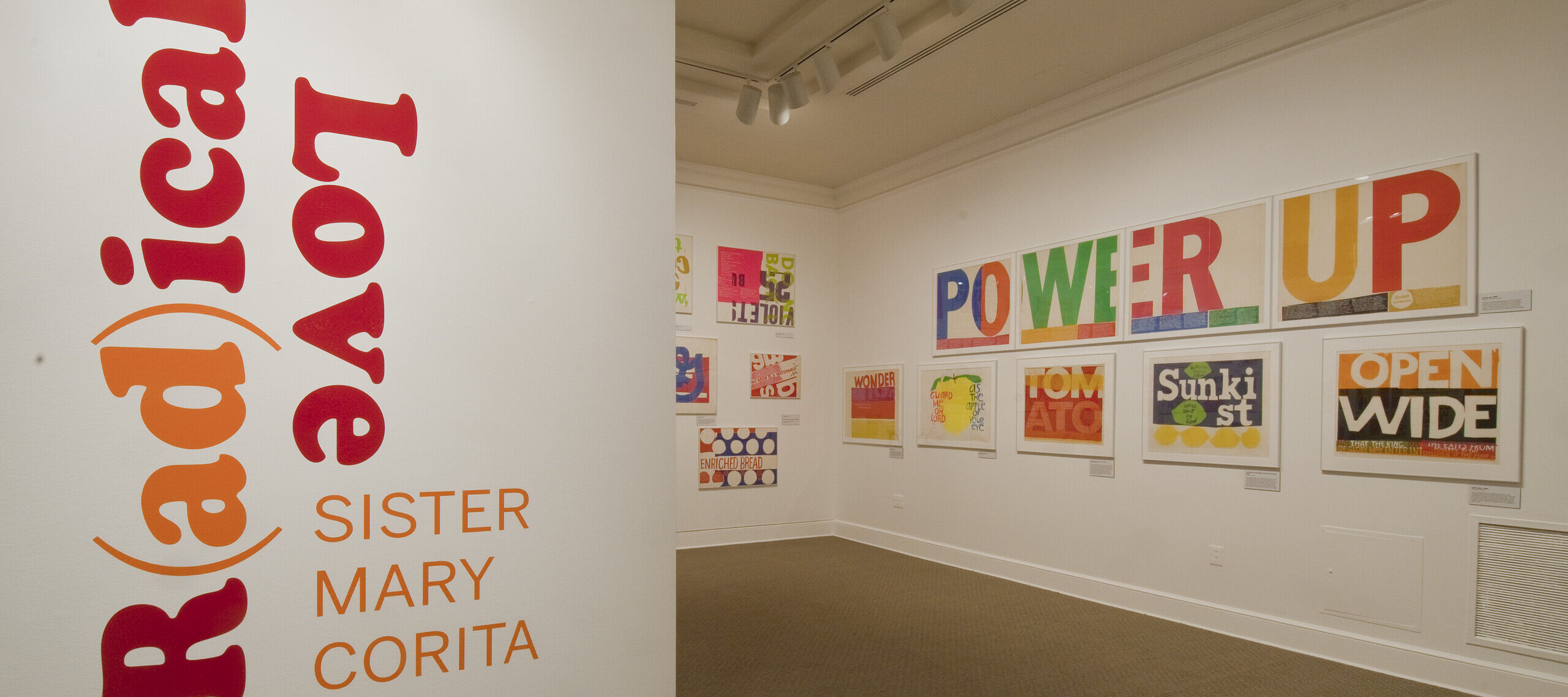Sister Mary Corita (later Corita Kent, 1918–1986) created some serigraph screen-prints that were very broad in their allusions and themes, although some of her work embraced specific historical events or issues of the 1960s. For example, in her print wide open, she blended a fragment from Psalm 24:9 (“Open wide…that the King of Glory may enter in”) with a quote from President Lyndon B. Johnson (“Open wide the exits from poverty to the children of the poor”), which was part of a speech he delivered to the U.S. Congress in January 1964. Johnson’s “War on Poverty” was exactly the kind of social reform that Corita sought. Coupling his words with a psalm was a call to action for Christians and voters, drawing a connection between spirituality and specific policy stances.

Yet, the quotes are minuscule in proportion to the giant “OPEN WIDE” that takes up the majority of the surface area on the print. This slogan, referring to a wide variety of food products and consumption, adds a layer of consumer meaning, layering a third meaning wide open. Corita faced a large amount of criticism for her work, especially from within the Catholic Church. The cardinal archbishop of Los Angeles condemned her art as sacrilegious and wrote frequently to the Immaculate Heart Community to criticize and stifle her art. Although her work as a nun had given her a beginning in the art world, by 1968, Corita was ready to move on. She and nearly 400 IHC sisters surrendered their vows as a result of the pressure they faced from the Church.¹ The break with the institution allowed Corita, now Corita Kent, to more openly express her views.
This was the nun who wanted mass to be held in a supermarket. This, the teacher who wore flower braids and walked with students on IHC’s “Mary Day.” This was the artist who created serigraphs from Wonder Bread graphics. Corita, a Renaissance woman in every sense, was a nun, artist, political activist, force for social justice, “hippie,” and inspiring woman.
She saw the world in clear-cut terms, yet her vision and influential body of work, on view through July 15 at NMWA in R(ad)ical Love: Sister Mary Corita, reflected her singular time and personal evolution.
Notes:
1. The biographical information included here is based on the Corita Papers, 1936-1992; MC 583, from the Schlesinger Library, Radcliffe Institute, Harvard University, Cambridge, Mass.
